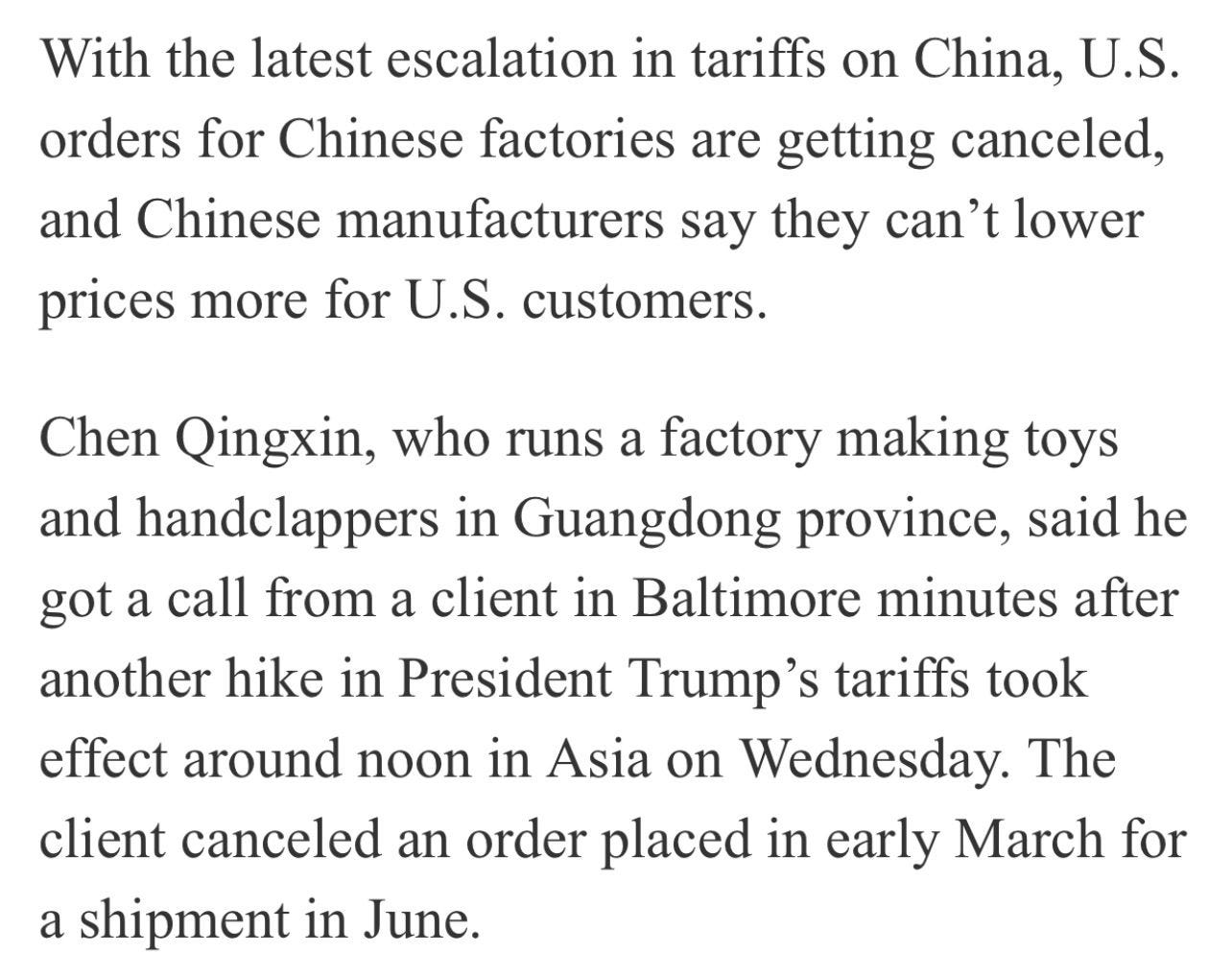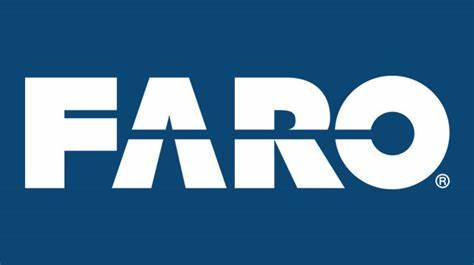We’ll be going back to the industrial automation theme for this week’s single-name stock pick.
Though we’re still in the early innings of the global trade war, I believe significant movement has been achieved in just over a week. Since I’ll be publishing the update to the tariff story on Tuesday, I’ll be brief given the recent updates.
China began facing pressures on orders following a series of imposed tariffs. Though the build-up was steady, it appears that tariffs were increased to a whopping 145% on Chinese imports. For all we know, this could be 200%+ by Tuesday next week!
The Wall Street Journal reported that many Chinese factory orders have been canceled as a result of the higher cost to import various items. The goods reported included toys to PVC pipe. Though it is too early to realize the full impact of these tariffs, the signs are there that US-based companies are reducing their exposure to China.
Unless China backs down on the trade war, I have no reason to expect President Trump to ease up anytime soon. Even Apple (AAPL) has gone on the record suggesting that the firm will be stepping up its iPhone manufacturing in India. In addition to this, Apple airlifted 600 tons, or 1.5mm iPhones, out of China and into India.
With Apple’s new $500b investment in US manufacturing, one has to wonder exactly what all will go into these large industrial facilities. Judging by Apple’s San Francisco office, I’d imagine the Houston, Texas facility will be beyond state-of-the-art. This will likely involve significantly more automation when compared to the Chinese Foxconn factories putting their iPhones together.
We’ll be looking at Faro Technologies (NASDAQ: FARO) in this week’s newsletter. Faro designs and manufactures software-first industrial automation products. This allows customers to bring their virtual 4D, 3D, and 2D data into the physical domain. Faro’s market is more tied to field work in markets like the construction and engineering space.
Faro supports a wide variety of markets, including:
Manufacturing
Surveying
Architecture
Engineering
Construction
Aerospace & defense
Automotive
Machine fabrication
Public safety & forensics
Faro has a global presence with sales spread across the US, EMEA, and APAC.
This may expose Faro to certain geopolitical risk as it relates to trade tariffs; however, these risks may be minimized given that the majority of the firm’s manufacturing footprint is in Thailand. The firm has also entered into a partnership with a contract manufacturer that can be nimble in manufacturing in different regions, potentially mitigating most or all of the tariff impacts. Faro also has 13 regional service centers that can mitigate tariffs for repairs and maintenance.
On Liberation Day, President Trump imposed a 36% trade tariff on Thailand given the country’s export-oriented economy. Thailand was one of the many countries that came to the negotiation table to mitigate any risks to the country’s manufacturing businesses, including increasing US imports in order to balance trade with the US. As a result of this, the trade tariff was reduced to 10% for 90 days during the negotiation period.
As a result of the trade tariffs, certain regions are cautiously navigating the markets, particularly in Europe. Accordingly, Chinese demand is relatively soft as the market faces significant headwinds. This could be a potential theme throughout 2025 where customers become more cautious in new projects and refreshing aging equipment.
With newly imposed tariffs on Chinese imports climbing to 140%, trade between the US and China may diminish fast. Despite this factor, Faro may be relatively shielded from the trade war given its manufacturing geographical footprint.
Keep reading with a 7-day free trial
Subscribe to Monte Independent Investment Research to keep reading this post and get 7 days of free access to the full post archives.








